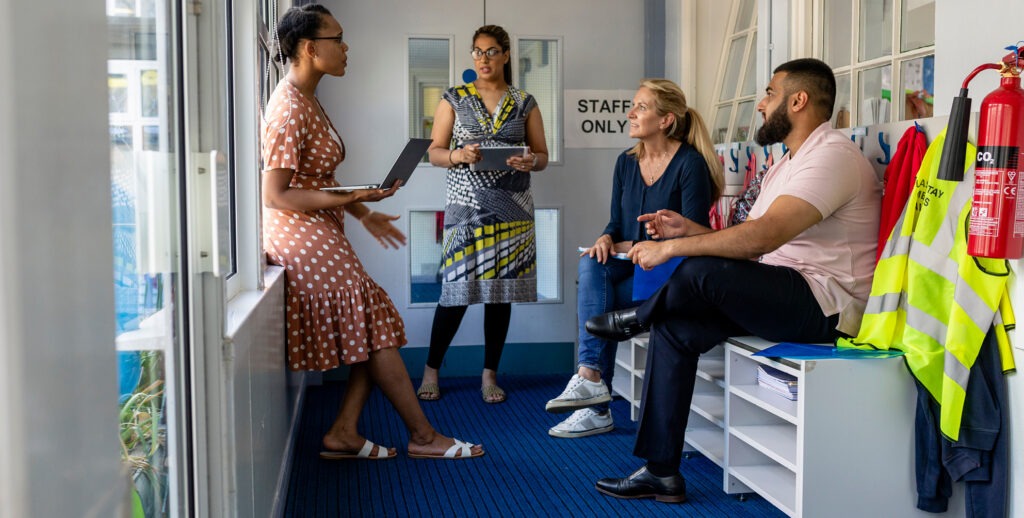ATA Strategy Committee Update
ATA Members-Only Content This content is an exclusive benefit for ATA members. If you are a current ATA member, log in for immediate access.…
Team Interpreting for Magistrate Courts in Texas
Learn how Texas magistrate judges, court staff, prison personnel, and interpreters are working remotely to ensure that non-English-speaking and limited-English-proficient detainees understand their rights when facing criminal charges.
Language Industry Standardization in Argentina: A Brief Overview
In recent years, the term standardization has become increasingly relevant in the language industry, with a growing need for more information on the subject. Here’s an introduction to the main aspects related to standardization and the language industry in Argentina.
“Your Story Is Your Weapon”: Interpreting for Immigrants in the Wake of Trauma
Whether in legal, health care, or community settings, interpreting for immigrants who’ve been forcibly displaced tests emotional resources. An interpreter shares techniques from the ancient art of poetry for building resilience.
ATA 2022 Elections: Candidate Statements
Calling all Voting members! Participating in ATA’s annual elections is your opportunity to help shape the future of the Association. Learn what this year’s candidates for ATA’s Board of Directors have to say. Remember, the Annual Meeting of Voting Members and Election will be held October 13, 2022.
Quick Tips! Get Started on a Style Guide NOW!
Developing a style guide is essential for translation and localization, but who has time to do it? Find out how creating QuickTips could help you address style and terminology issues right away.
Collaborating with Self-Published Authors: Another Option for Literary Translation
Can you make money working with self-published authors? Yes! Will you make as much per word as you would if you were translating a chemical patent or financial report? No, probably not, but it can still be worthwhile.
How I Went from Translator to Subtitler in Just a Few Months: Tips to Start You on Your Way
The pandemic gave me something I desperately needed: a large chunk of time and a good reason to diversify my service offerings. Here’s an outline of the four steps I followed to save my business and quickly transition from translator to subtitler.
Translators and Interpreters Working Together to Create a National Code of Ethics for Educational K-12 Settings
After years of borrowing from other fields of specialization, translators and interpreters working in K-12 educational settings are coming together to create a code of ethics and standards of practice that takes into account the reality of this environment and how multiple interpreting and translation specializations converge in this space. Find out how a multi-state team of professionals has taken the lead to standardize practice and advance the recognition of the role of professionals in this field.
Is the Pen Mightier than the Sword, or How Much Do Words Really Matter?
In recent years, people have become more aware of how language, and specifically inappropriate terms, further sustain inequalities. While replacing outdated terminology with new, more appropriate, and inclusive words seems straightforward enough and can solve concerns around racist, ageist, or ableist terms, using inclusive language to remove inequalities doesn’t stop there.
Forming A Peer Study Group to Prepare for ATA’s Certification Exam
Peer-based study groups are an effective way to prepare for ATA’s certification exam. Learn how one recent group was organized and administered, including recommended best practices for future groups.
T&I Stakeholders Talk Interconnections
Interconnections are key to shaping legislation and policy, facilitating technology and its integration, and crafting education and training in ways that benefit the translation and interpreting industry as well as the greater language enterprise.











